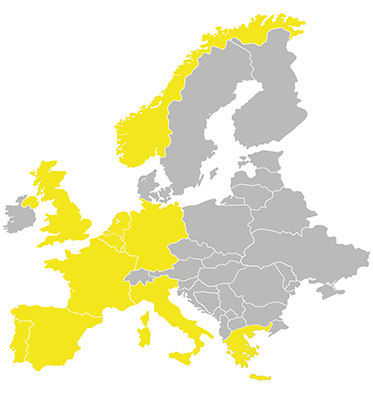By Dr Dorian Parker, Senior Innovation Consultant
Smart Grants is Innovate UK’s flagship responsive grant funding scheme. It seeks the best game-changing and world-leading ideas, and is designed for swift, successful commercialisation. The Smart Grants competition is aimed to be as open as possible to innovations coming from any sector. It is not targeted at any specific technologies or sectors. Whilst the overall aims have remained broadly constant over the years, recently there have been some subtle but important changes. Understanding these can make the difference between success or failure of your grant application.
New trends for succesful Smart Grants applications
Here at PNO, we submit around 70 Smart Grants applications per year and achieve at least 8 times higher success rates than the national averages. Through our experience and analyses, we have identified a series of new trends for successful Smart Grants applications:
- SMEs should generally be well-established and/or have secured a demonstratable commercial interest in the ground-breaking innovation that is the focus of the project. This can for example, be through early sales or early adopters. Whilst Smart Grants still includes Feasibility Studies from Technology Readiness Level (TRL) 2 (concept only) within its remit, most innovations that are very early-stage in development will be less likely to meet this criterium. Innovations that are untested in the market or straight from the research base are less likely than they previously were to be funded under Smart Grants.
- SMEs need a well-developed, rigorously conceptualised route to market. This should be based on existing established stakeholder relationships, including clear plans for the period immediately post-project, through to initial market penetration and larger scale commercialisation. It includes identifying who the early customers will be and mapping out a well-defined supply chain. Developing this from zero only within the project is now more likely to be viewed as a weakness.
- Innovations developed by the SME(s) in the project must demonstrate significant advances beyond the state-of-the-art and a clear high return-on-investment (ROI) that is at least in line with private investor expectations. Whilst this has always been the case, a thoroughly validated sales forecast now bears additional importance, including detailed revenue and profit projections backed up by a clear description of the underlying assumptions.
- A greater focus on justifying the need for funding. This is now the second scored question in the application, meaning that it is more likely to be read early by evaluators and contribute more strongly to their overall opinions of the application. It is important in this section to quantify the level of productivity and impact to your business. Clear explanations on why you need Smart Grants funding as opposed to other sources are also key. This includes other grants both within and external to Innovate UK and where you are in terms of raising equity investment. It is generally expected that the project will be a crucial trigger for private investment into the company and innovation at hand.
Simplifying the application forms
In conjunction with these changes, Innovate UK have tried to simplify the application forms by making them more focused and thus reduce the burden of both proposal writing and reviewing. There are now only 6 scored questions (2800 words in total) with 3 appendices (6 pages), whereas previously there were 10 scored questions (4000 words) and 4 appendices (10 pages). However, the amount of information that is required for a strong submission remains broadly similar and has resulted in less room to make your case. This emphasises more than ever the need for highly refined structured text and appendix graphics with which to convey clear, compelling arguments.
Scope your project ideas without any obligation
Fortunately, PNO Consultants specialise in developing winning Smart Grants proposals, with a full understanding of how a project should be presented to stand the highest chance of success. This is a highly competitive funding scheme with national average success rates of only 5% and nearly 800 applications per round. Our sector-leading expertise significantly increases the likelihood of success in Smart Grants and other national and EU funding schemes. Our passion is in enabling the highest-potential SMEs to accelerate their innovation journey. Don’t hesitate to get in touch to scope your project ideas with us without any obligation.
For further information or to discuss a project idea please contact PNO Consultants 0161 488 3488 | info.uk@pnoconsultants.com








